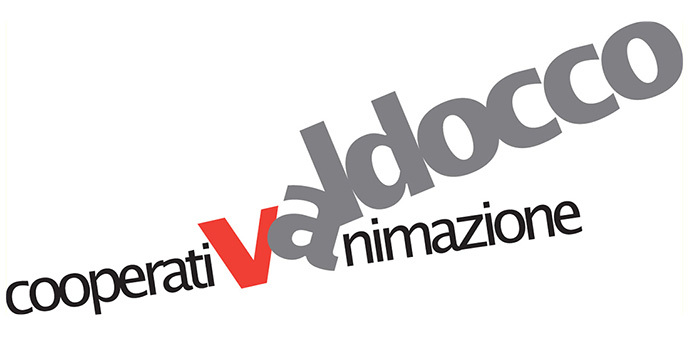As part of the projects funded by the social enterprise CON I BAMBINI, Caleidos promotes interventions for early childhood (0-6 years) in the period 2018-2021 in Piedmont, Veneto, Friuli Venezia Giulia, Marche and Basilicata. 42 subjects, public and private, on the national territory and, in partnership with each other, support the initiatives with the coordination of the Cooperativa Animazione Valdocco of Turin.
The regional reference partners (Itaca Cooperatives for Veneto/FVG; Labirinto for Marche; Progetto Popolare for Basilicata; Animazione Valdocco for Piedmont) have felt the crumbling of relationships around children that tend to isolate and passivate them: adults have little time and little importance in children’s worlds, and so they play, talk, learn less. It is necessary to recognize family subjectivity in relation to communities, but also to entrust and reorganize educational responsibilities starting from families. Returning educational responsibilities generates relationships of proximity, brings children and families to meet those who were until yesterday distant, even if they were neighbors. Schools, gardens, spaces of activity must be lived together by children, families, young people, the elderly, associations: the common experience multiplies relationships and increases the educational time of adults and children. This type of experience improves the quality, access, usability, integration and the innovation of existing services and strengthens the acquisition of fundamental skills for the well-being of children and their families through Community Welfare approaches that involve the subjects (educational community) who in turn, for various reasons, deal with childhood and education in the different communities where the Project is carried out.
ACTIONS
- Support for kindergartens and kindergartens. Facilitation of family/school mediation and support to the access of families and children contacted in the High-Density Educational Points and the High-Density Educational Presidium by operators.
- Activation and management of High Educational Density Points and Presidiums. The Presidiums are home to initiatives and back office, family reception and community work, with ramifications of activities (through the Points) to the areas most at risk of educational poverty.
- Support and strengthening educational communities. In order to increase the relational capital of fragile families, light meeting contexts are activated with nearby families interested and available for exchange activities (time, information, affection, objects, …); in each territory is activated an Educating Community Table (Ta.C.Ed.) that involves local actors in monitoring activities and co-programming of local actions for early childhood.
- Support survey child health needs and reinforcement of diagnostic and therapeutic responses. Activities to detect early disorders of health relevance and support families’ access to dedicated specialist services.
- Drafting, tutoring and support of Family Educational Pacts. Promotion and Contract between tutors and adults of the family involved to increase the quality of educational life of the family and, consequently, of the community.
IMPACT
The impact measurement system, designed and maintained by the Tiresia International Research Centre of the Politecnico di Milano, provides two methodologies: Social impact assessment (SIA) and related social value chain: output (results) – outcome (changes generated on beneficiaries), and impacts (changes generated at country level).
Starting from the 5 macro actions and compared to the beneficiaries, the national value chain has been built. In the platform you can find all the result indicators to which the outcome indicators have been associated and the individual targets and impact indicators. Among the outcomes: the increase in social inclusion and well-being; the strengthening of social participation and social and institutional relations; the increase in accessibility to childcare services by families; the decrease in the number of families at risk of educational poverty, increase in family and parental self-efficacy, increase in parental educational skills; reduction of childhood educational distress, preventive reduction of possible health-related disorders and increased access to dedicated specialist services, strengthening, improvement of children’s interaction skills, strengthening cognitive and non-cognitive skills of children. In order to quantify the outcome indicators, quality-qualitative interviews will be conducted with families, children and schools/operators on the basis of scales recognized in the literature.
The quantification at two years (final attribution and multipliers) will take place thanks to the Ta.C.Ed. that ensure long-term sustainability; appropriately supported, they will monitor the impacts at 24 months after the end of the activities.
PROMOTERS
The cooperatives Itaca,Veneto/FVG; Labirinto, Marche; Progetto Popolare, Basilicata; Animazione Valdocco, Piemonte.
OTHER PARTNERS AND ORGANIZATIONS
- Piemonte – Torino: ass.ne volontariato 360, Comune di Torino.
- Piemonte – Settimo Torinese TO: Fondazione comunità solidale, Palaver, ASL TO 4, Unione Comuni Nord Est TO, Comune Settimo T.se, Ist. comprensivo Settimo III, Ist. comprensivo Settimo IV.
- Veneto – San Vendemiano TV: Fondazione comunità sinistra Piave, coop. Stella, ULSS 2, Ist. comprensivo Conegliano 1 F. Grava.
- Friuli Venezia Giulia – Pordenone: Fondazione Well Fare, coop. Abitamondo, coop. Melarancia, ass.ne genitori Melarancia, Comune Cordenons, Comune Pordenone, Ist. compr. Pordenone Centro, Ist compr. Cappella Maggiore, Ist. compr. Pordenone Sud, Ist. compr. Rorai Cappuccini, Ist compr. Pordenone Torre, AAS 5.
- Marche – Pesaro: Fondazione Noi Domani, Comune Gabicce Mare, Comune Gradara, Comune Pesaro, Unione Comuni Pian del Bruscolo, Ist. compr. Elio Tonelli.
- Basilicata – Montescaglioso MT: Centro Servizio Volontariato MT, Comune di Montescaglioso, Ist. compr. Palazzo-Salinari, USL 4.
- Altri: Politecnico di Milano (soggetto valutatore, Tiresia), Fondazione per l’Innovazione del Terzo Settore


